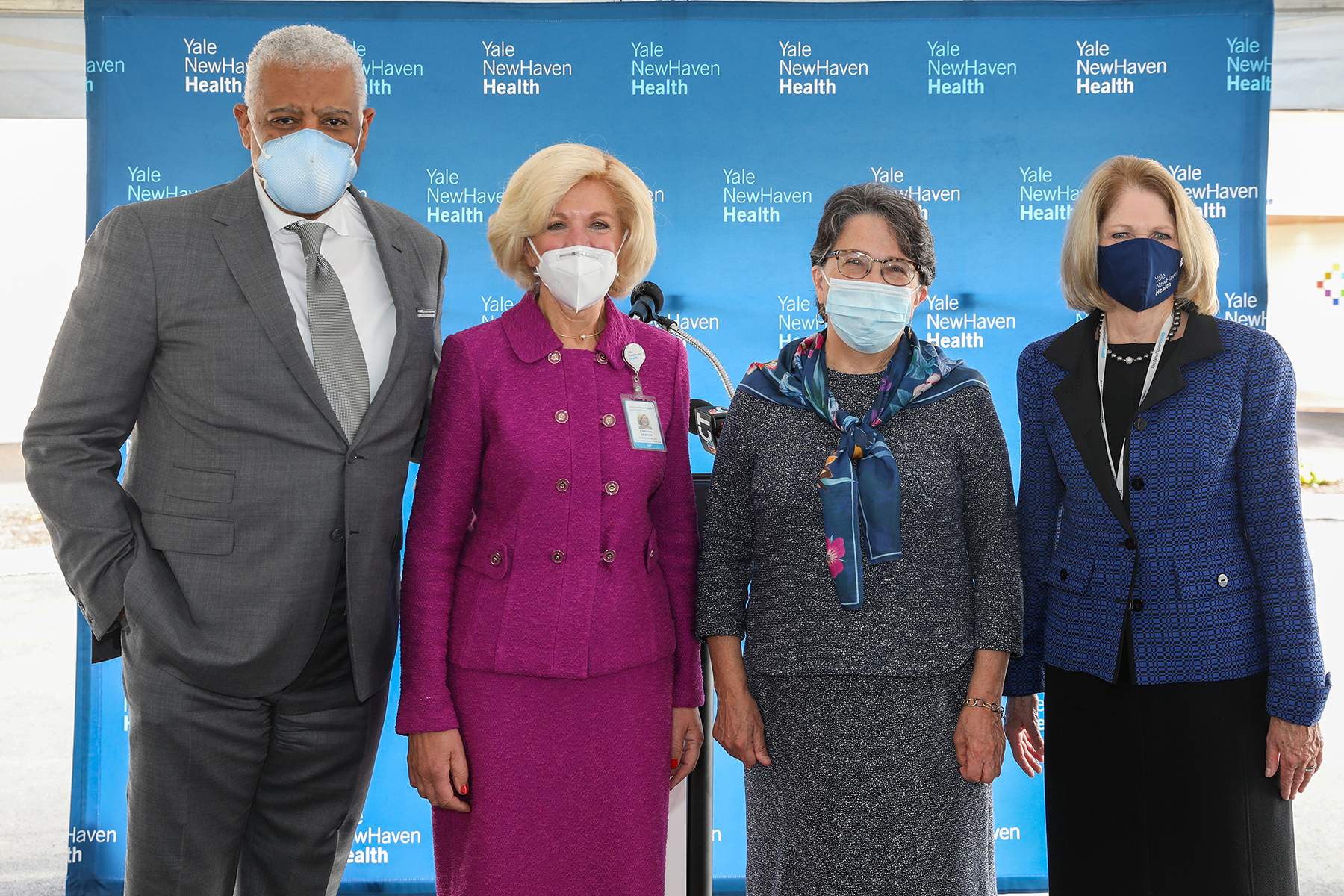
Yale Daily News
Born out of a collaboration between Yale New Haven Hospital, the Cornell Scott-Hill Health Center and Fair Haven Community Health Care, the New Haven Primary Care Consortium, or NHPCC, opened its doors at 150 Sargent Drive on Oct. 26.
The consortium’s purpose is to address the medical, behavioral and social needs of New Haven’s most vulnerable patients with innovative, compassionate and high-quality care. Its official launch comes after over five years of planning, and reflects the hard work and dedication of many primary care leaders, who came together to build the novel healthcare model centered around the patient experience.
“This unique collaboration with the two federally qualified health centers (FQHCs) in New Haven, Fair Haven Community Health Care for pediatric care and Cornell Scott Hill Health Center for adult care, connects caregivers for more than 80% of the underserved patients across the greater New Haven area using the same electronic health record,” Yale School of Medicine Dean Nancy Brown wrote in an email to the News. “This collaboration will enable us to better identify and address the social determinants of health.”
The federal Health Services and Resources Administration defines FQHCs as community-based health care providers, funded by the HRSA’s own Health Center Program to support the provision of primary care in traditionally underserved locations.
When plans were still being made for the consortium, a number of Yale medical professionals, including Tracy Rabin, co-director of the Yale Primary Care Internal Medicine Residency Program, were concerned that the new Long Wharf site on Sargent Drive would be less accessible for patients, creating barriers to consistent care. While previous clinics were within walking distance for many patients, several of them would need to either drive or take a bus to reach Long Wharf.
Rabin explained that after strong community advocacy, the NHPCC was required to draft a patient transportation plan to ensure that no one would be deterred from seeking care due to accessibility issues. According to Rabin, these plans include rideshare supports for patients who meet certain criteria.
These criteria include those who live within 10 miles of Sargent Drive, whose trip to the consortium would take over 40 minutes on public transport and who do not own or have access to a private vehicle, according to the Connecticut State Office of Health Strategy. In addition, YNHH will contract with Coordinated Transport Solutions, Uber and Milford Transit District to arrange for patients to be transported between Sargent Drive and YNHH campus locations. All vehicles will also have to comply with the Americans with Disabilities Act — a civil rights law that protects people with disabilities from discrimiation.
To ensure that transportation is not an issue, YNHH is due to oversee these services until 2022 and compile reports to the state Office of Health Strategy that identify potential barriers and recommend improvements.
“As providers, we are doing our best to try to keep our patients engaged with care,” Rabin wrote in an email to the News. ”That said, this transportation plan will need to be rigorously evaluated. Specifically, now that the plan has been put into action, we will need to look at how many patients switch doctors or fall out of care due to transportation issues, and then address that.”
Brown explained that the new consortium will serve as the primary care site for Yale’s pediatrics, internal medicine and obstetrics and gynaecology residency training programs. As such, it will be staffed by Yale residents and medical school faculty, as well as nurses and other staff members who used to work at the now-closed YNHH-based primary care centers, which were closed to be consolidated with the FQHCs in this new consortium.
In a press conference on Oct. 20, CEO of Fair Haven Community Health Care Suzanne Lagarde said that the change will ensure that the next generation of medical leaders will embrace their critical role in the service of vulnerable populations.
Rabin noted that an important aspect of the new consortium is that it allows for the incorporation of resources that only FQHCs — such as Cornell Scott-Hill and Fair Haven Community — traditionally have access to like integrated mental health care and case management.
“From the perspective of the FQHCs, this move enabled them to be integrated into the same electronic medical record as the Yale New Haven Health System, which is beneficial for the management of individual patients who often get their care at multiple sites, and is also helpful in looking at ways to use data to improve the health of different groups of patients,” Rabin wrote.
According to Shefali Pathy, medical director of women’s health at the NHPCC, residents being trained in reproductive health care will work with attending physicians and advanced practice providers to deliver prenatal and postpartum care to low-risk and high-risk patients alike, in addition to gynecological care. Learning through the FQHC model — which involves caring for patients in underserved areas — will provide these trainees with new opportunities to learn about different health care delivery systems.
“Inherent in the FQHC model are specific assessments focused on social determinants of health including the ability to address such issues as food and housing insecurity, and behavioral health,” Pathy wrote in an email. “Importantly, the FQHC model facilitates care-coordination by assisting patients with the navigation of many aspects of the complex health care system.”
Pathy also explained that this new partnership will allow for mental health services to be integrated into the consortium’s care model, facilitating access to mental health counselors and specialists who would otherwise have long waiting times.
The NHPCC is located at 150 Sargent Drive.
Maria Fernanda Pacheco | maria.pacheco@yale.edu
Veronica Lee | veronica.lee@yale.edu







